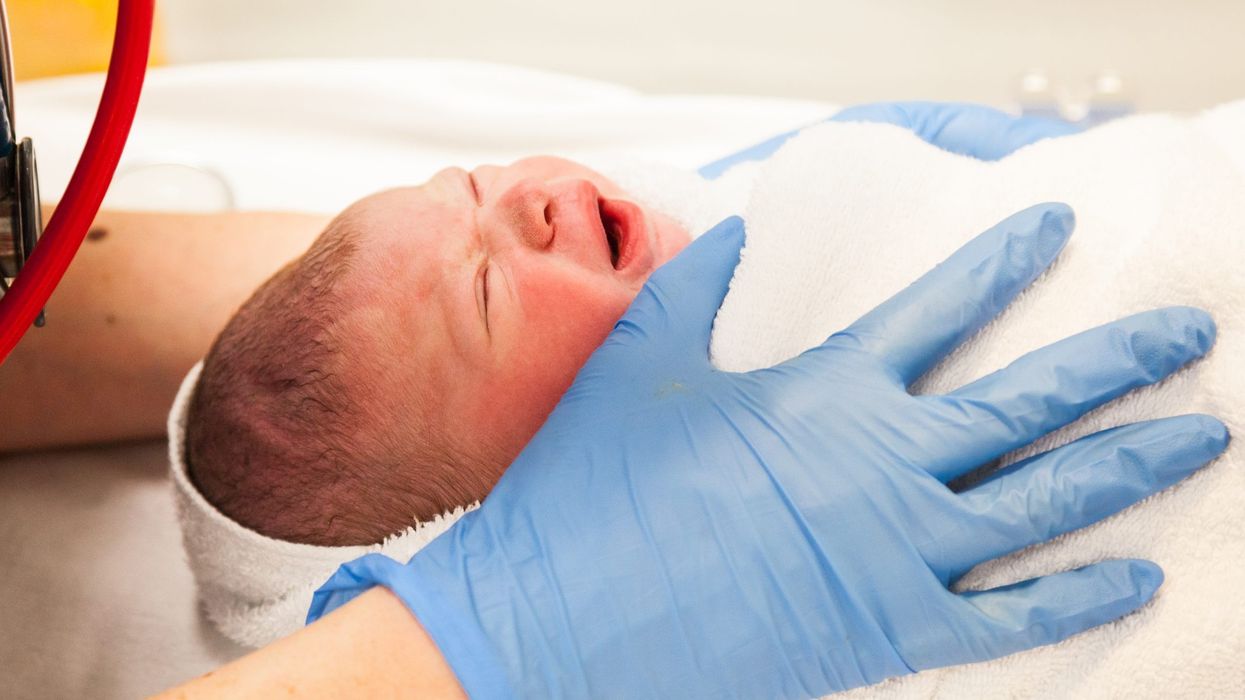AN ACCLAIMED Asian surgeon who featured in Channel 4's “Baby Surgeons: Delivering Miracles,” has spoken of how he hopes the documentary will help change a “hugely judgmental culture” regarding women who make "difficult decisions about difficult pregnancies".
Basky Thilaganathan is the director of foetal medicine at St George's Hospital in Tooting, London, where he and his team perform hundreds of intricate procedures to help give unborn babies a chance of life, who are otherwise very ill or likely to be born with some disability, by operating on them while they are still in the womb.
Thilaganathan, and one of his colleagues, Professor Asma Khalil, are the highlight the role of foetal surgery in the womb in the Channel 4 program.
“What really upsets me is when parents in really difficult situations are judged for what they’ve done,” the 55-year-old foetal medicine expert told The Times in an interview last week.
“Women make tough choices. Sometimes they choose brave decisions and other times they say, ‘This is just too much for us. We want to end the pregnancy'.”
Describing a case where a baby had tumour in his lungs, the docu-series shows how a 2mm needle was inserted across through mother’s skin, and then down through 25 layers of adipose tissue, muscles, the muscles of the womb and finally the chest wall of the baby, heading for the 1mm blood vessel that was feeding the tumour.
Thilaganathan’s task was to “zap” the blood vessel without interfering with the heart, which was just 1 cm away.
He points out how decades of improvements in medical science, including lasers and ultrasound, have made these surgeries possible as compared to 30 years ago when the surgery would have involved opening up the uterus, pulling out the baby, cutting open her chest, removing the tumour, putting her back in and sewing up the uterus.
Thilaganathan, who is of Sri Lankan heritage, grew up in Nigeria, where his father worked as a civil engineer. At 11, he was sent to boarding school in England, at Dulwich College. He lives in south east London with his wife and two daughters.
He trained under Kypros Nicolaides and was part of the team when the latter performed the first surgery to correct twin-to-twin transfusion syndrome (TTTS), a rare complication when identical twins share a placenta.
“It took a couple of hours,” Thilaganathan remembers. “Everyone was sweating. We couldn’t see very much and it was really, really fraught. In the end, everyone was exhausted. Nowadays we do it at 8 am, it takes 10 minutes and I do a full day’s work afterwards.”
Thilaganthan spoke of the love for his work at the clinic at St George’s, in Tooting.
He told the newspaper, “we’re not surgeons. We’re foetal medicine experts.”




